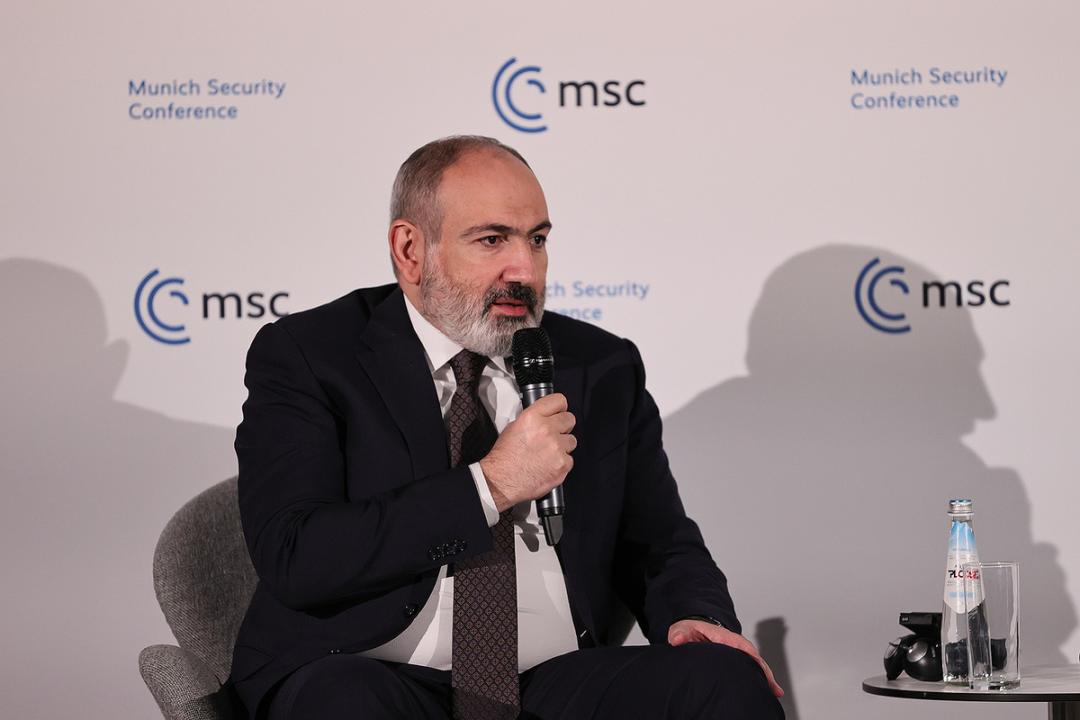
Clarifying Armenia's Stance: Pashinyan on Ukraine War and Karabakh's Future

At a meeting in Munich with representatives of the Armenian community in Germany on February 18, Armenian Prime Minister Nikol Pashinyan addressed Armenia's stance on the sovereignty and territorial integrity of former Soviet republics, notably in light of the Russian war against Ukraine.
Pashinyan emphasized the significance of the 1991 Alma-Ata Declaration as the foundation for recognizing the sovereignty and territorial integrity of post-Soviet states. He stated, "The Alma-Ata Declaration was adopted by 13 republics of the Soviet Union, including Russia and Ukraine. Among others, they are the initiators of it because by the Belovezh Agreement, Russia, Ukraine, and Belarus decided that the Soviet Union no longer exists, and they became independent states and recognized each other's borders."
Regarding Ukraine, Pashinyan highlighted the Alma-Ata Declaration as the basis for recognizing the sovereignty and territorial integrity of the country, emphasizing its relevance to all parties involved. Pashinyan reiterated Armenia's independent stance on the issue, stating, "Armenia is not an ally of Russia on the issue of Ukraine, and this is our sincere position." He expressed regret over the inability to influence the situation and emphasized the friendly relationship between Armenia and the people of Ukraine.
Moreover, Prime Minister Pashinyan clarified the notion of Karabakh's right to self-determination, asserting that it implied autonomy within Azerbaijan. Pashinyan acknowledged a historical misunderstanding, revealing that Armenia had lacked crucial information for an extended period. Pashinyan referenced the OSCE Lisbon summit of December 1996, where the chairman emphasized the international community's stance on the right to self-determination. He explained that the consensus, excluding Armenia, favored settling the Nagorno-Karabakh issue with high autonomy within the Azerbaijani Republic.
The Prime Minister highlighted the challenge of initially grasping this truth and communicating it effectively to the public. He admitted, "It seemed to us that we could 'punch through' the international community and achieve our goal. It seemed to us that we conflicted with Azerbaijan, but in fact, we conflicted with the entire international community, which is unreasonable."
Reaction from Russia
Highlighting the stark contrast in perspectives between the two countries on February 19, Russian Presidential Spokesman Dmitry Peskov commented on Pashinyan's statement regarding Armenia's stance on Ukraine, stating that Moscow and Yerevan hold divergent positions on the matter.
"It is indeed true that we have opposing views on what is happening in Ukraine and the conflict around Ukraine. This is not a secret, so it is a well-known position of our Armenian friends. We do not agree with them on this, and we will persistently continue to explain our rightness," Peskov emphasized.





